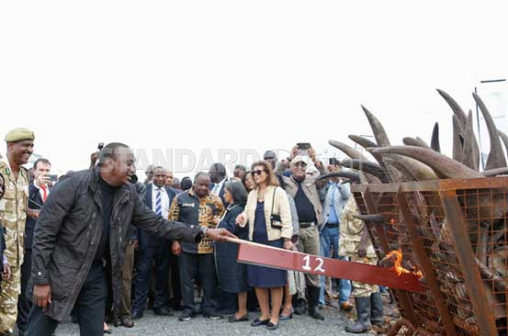×
The Standard e-Paper
Stay Informed, Even Offline

Kenya made a bold statement yesterday in her quest for a complete ban on ivory trade by burning 105 tonnes of elephant tusks and one tone of rhino horns. The country also insisted that was the right decision, saying ivory belongs to the elephants.
“No one has any business trading in ivory. This trade means death. Death to our elephants and our natural resources. Our natural heritage cannot be sold for money,” President Uhuru Kenyatta said as he presided over the historic burning of the stockpiles.